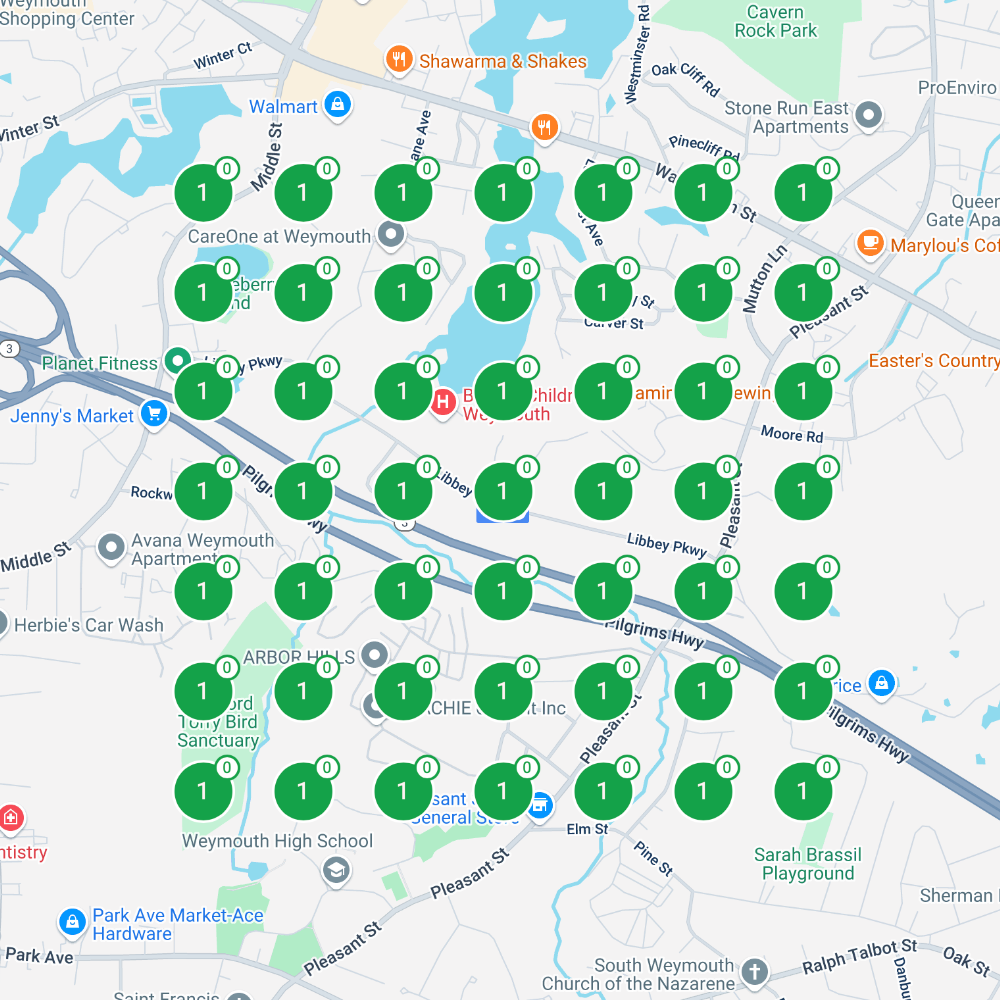
Reliable SEO for Bad Guy Law Forms Websites

Criminal law types websites inhabit a narrow however essential specific niche at the crossroads of legal info and digital availability. For defendants, lawyers, and even families browsing the criminal justice system, access to precise kinds can be urgent. Yet these sites deal with special SEO obstacles: rigorous compliance guidelines, delicate topic, and a highly competitive search environment dominated by government portals and large legal brands.
Drawing on more than a decade working with law office and specialty legal platforms, I'll untangle the practical realities of ranking a criminal law forms site. This isn't about video gaming algorithms. It's about constructing authentic trust with both users and online search engine while remaining within ethical and regulative lines.
The Distinct Landscape of Wrongdoer Law Forms SEO
When enhancing any niche website, context is everything. Criminal law kinds websites serve a varied audience that consists of laypeople in distress, public defenders seeking fast recommendations, private attorneys expanding their practice areas, and sometimes even reporters or educators. Each group brings various expectations for speed, clearness, authority, and privacy.
Unlike e-commerce SEO or Medspa marketing - where visuals rule supreme - criminal law content must foreground precision and empathy over style. False information here can cause genuine harm: an inaccurate expungement type or outdated bail schedule can hinder somebody's life plans.
Complicating matters even more is competition from.gov domains, statewide bar associations, national legal help sites (like Nolo or LegalZoom), and an ever-changing landscape of regional guidelines. Ranking above these trusted entities requires both technical skill and authentic expertise.
Keyword Strategy: Balancing Volume With Relevance
Criminal law is packed with specialized vocabulary - "motion to suppress," "expungement petition," "plea contract type." Yet searchers do not constantly use these terms correctly. An offender might search for "how do I drop charges form" while a lawyer looks for "Guideline 32 post-conviction relief design template Arizona."
Here's where real-world experience settles: studying actual inquiries from your analytics will expose surprising patterns. For instance, one customer discovered that "DUI very first offense documents TN" drove more conversions than generic "criminal kinds Tennessee." Another saw spikes around particular vacations when domestic violence charge resources were needed most.
A healthy keyword set need to blend high-volume phrases ("criminal defense types pdf") with long-tail queries tied to jurisdictions ("Maricopa County plea contract sample"). Don't overlook synonyms or misspellings - people in crisis hardly ever spell "arraignment" correctly on the first try.
If you're dealing with associated verticals such as SEO for personal injury legal representatives or trial legal representatives' practices, cross-referencing their keyword data can light up overlapping opportunities. However constantly filter through a legal lens; what works for tax firms or e-commerce SEO often misses the subtlety required here.
On-Page Optimization Without Sacrificing Usability
The temptation is to stuff pages with every version of "complimentary criminal type download" imaginable. Resist it. Google's Handy Material standards now explicitly reward pages that meet user intent efficiently.
Instead:
- Place main keywords in page titles and H1s.
- Use concise meta descriptions that clarify scope ("Download official Arizona expungement forms with detailed instructions").
- Structure content so users discover what they require quickly: clear headings ("Dismissal vs Expungement"), apparent download buttons, simple navigation between form types.
- Embed jurisdictional hints naturally in copy ("These kinds abide by California Penal Code Section 1203.4").
Don't neglect accessibility essentials either. Lots of users might be older grownups or non-native speakers under stress. Use legible font sizes, plain English descriptions alongside legalese where feasible, and alt text for all graphics (even if it's just boston web designer a scan of a court document).
Anecdotally, including brief video walkthroughs explaining how to submit each type can increase time-on-page by 40 percent or more - provided transcripts are offered for ADA compliance.
Trust Signals: Beyond Simply E-A-T
Legal material falls under Google's YMYL (Your Money Your Life) category; stakes are high because misinformation could have major effects. This implies magnifying trust signals at every turn:
Attorney authorship is perfect but not constantly feasible at scale. At minimum:
- Clearly list sources for every single type - mention statutes or official court websites.
- Date-stamp material updates (e.g., "Examined by J.Doe Esq., January 2024").
- Offer brief bios of contributors if possible.
- Link back to authoritative bodies like state bar associations.
User reviews do not carry as much weight here as they may in Medspa SEO or a/c specialist directories unless they speak particularly to clarity or success rates ("This expungement guide assisted me restore my weapon rights in Texas.")
Finally: protect your site totally (HTTPS everywhere), show privacy policies prominently (users typically stress over confidentiality), and avoid aggressive pop-ups that undermine credibility.
Jurisdictional Subtlety: One Size Never Ever Fits All
Criminal treatments differ commonly between states - sometimes even between counties within the exact same state. A good SEO strategy shows this granular truth instead of going after broad nationwide rankings alone.
Rather than discarding hundreds of kinds on a single landing page labeled "All United States Bad Guy Kinds," invest time in developing out location-specific centers:
For example:
"New York State Felony Sentencing Worksheets"
"Cook County IL Movement to Vacate Conviction Kind"
These pages must explain not only what the form does but also when it uses under local rules ("Just eligible if conviction occurred after 2005") and link internally to pertinent guides or FAQs.
It pays to keep an eye on legislative changes carefully; nothing tanks authority much faster than hosting out-of-date versions after significant reforms pass (think marijuana decriminalization waves). Set calendar suggestions each quarter to validate your most trafficked downloads against current statutes.
Technical Foundation: Indexability Fulfills Compliance
Technical SEO remains foundational however must represent both efficiency and personal privacy:
Mobile usability is non-negotiable now that the majority of searches occur on phones throughout difficult moments outside court houses or police stations. I have actually seen bounce rates cut in half just by updating slow-loading PDF viewers on mobile pages.
Schema markup can clarify page type ("LegalService"), author credentials ("Lawyer"), downloadable resources ("MediaObject"). While not a silver bullet for rankings alone, these structured information aspects feed straight into Google's understanding of your site's legitimacy.
Page speed also matters deeply here since many users run on low-bandwidth connections late in the evening when searching discreetly from home.
Finally: constantly verify your robots.txt settings before launching brand-new sections containing sensitive products like juvenile records templates - some documents might need protection from indexing for ethical reasons even if technically public record somewhere else online.
Link Building Strategies That In Fact Work
Backlinks stay powerful currency however making them fairly in this space takes skill:
Thoughtful outreach to local bar associations frequently produces sustained recommendation traffic when done right - particularly if you provide worth back such as sharing anonymized usage patterns that help them determine community requirements ("half boost in demand for bail decrease motions in 2015").
Partnerships with law schools can yield citations from trainee resource centers eager to supplement classroom learning with real-world tools.
Guest posts on adjacent subjects (for example, working together with companies that specialize in mental health advocacy around criminal justice reform) open doors without straying off-topic as may occur going after links indicated for commercial cleansing companies or IT consultancies.
Avoid directories understood primarily for spammy legal representative listings; Google discounts these heavily now unless there's authentic editorial review involved.
Where possible, look for discusses from reliable news outlets covering regional justice problems by supplying timely stats or expert commentary based on anonymized website analytics ("Our platform saw a spike in ask for limiting order templates following brand-new legislation").
Measuring Results When Traffic Isn't Everything
Traditional metrics like raw natural sees don't constantly catch success here because user journeys are compressed: individuals want one type quick then leave rapidly when their instant need is met.
Better indications include:
If you see an uptick in attorney recommendations through your contact page rather than simply consumer downloads you're likely earning trust within the professional community too - which typically causes sustained growth even without viral spikes seen by moving business' sites during peak seasonality shifts.
Ethical Considerations Particular To Bad Guy Law Content
Unlike general-purpose SEO work done for painting professionals or designers where danger is low beyond miscommunication about color palettes or plans gone awry - mistakes here have actually human expenses determined in lost tasks or missed out on court deadlines.
Always make disclaimers popular: clarify whether your design templates are merely educational aids versus formally approved court documents under regional regulations. Where possible prompt users to verify jurisdiction before downloading so they do not submit the wrong version by mistake.
Never suggest attorney-client relationships unless one genuinely exists; casual language like "our legal team will examine your submission" might activate unintended liability problems if used thoughtlessly on consumption forms planned only as feedback studies instead of case evaluations.
Checklist: Launch Readiness For Wrongdoer Law Forms Sites
Before opening up brand-new sections or rolling out major updates, evaluation this brief checklist:
- Confirm all downloadable files are existing based on newest statutes
- Test mobile functionality across devices
- Implement schema markup reflecting page purpose
- Prominently show update dates/disclaimer language
- Double-check robots.txt/ personal privacy defenses prior to indexation
Having supervised dozens of launches throughout financing business' portals and health care business' patient consumption systems alike, I've found this five-point check beats fancy SOPs when stakes involve people's liberty instead of product returns.
Adaptability As The Competitive Advantage
SEO never ever stalls however no place does adjustment matter more than here. Legal reforms get here suddenly, public belief shifts after headline cases, and competitor relocations can overthrow best-laid methods overnight. Those who treat their websites as living tasks - frequently upgrading guides, responding transparently when mistakes slip through, and listening thoroughly not just to analytics however direct user feedback - earn durable authority no algorithm upgrade can erase.
Whether you're constructing out devoted centers serving trial attorneys specializing in appeals, or keeping tradition resources needed by funeral homes managing estate matters affected by criminal convictions, the principles stay continuous: prioritize accuracy, build trust brick by brick, and dedicate non-stop both to compliance today and advancement tomorrow.
With diligence, even small independent platforms can take significant presence amidst giants - not simply due to the fact that they chase rankings harder, however because they care more deeply about getting things right when it counts most. That spirit ultimately wins loyalty both human and algorithmic alike across any field touched by justice online.
SEO Company Boston 24 School Street, Boston, Massachusetts 02108 +1 (413) 271-5058